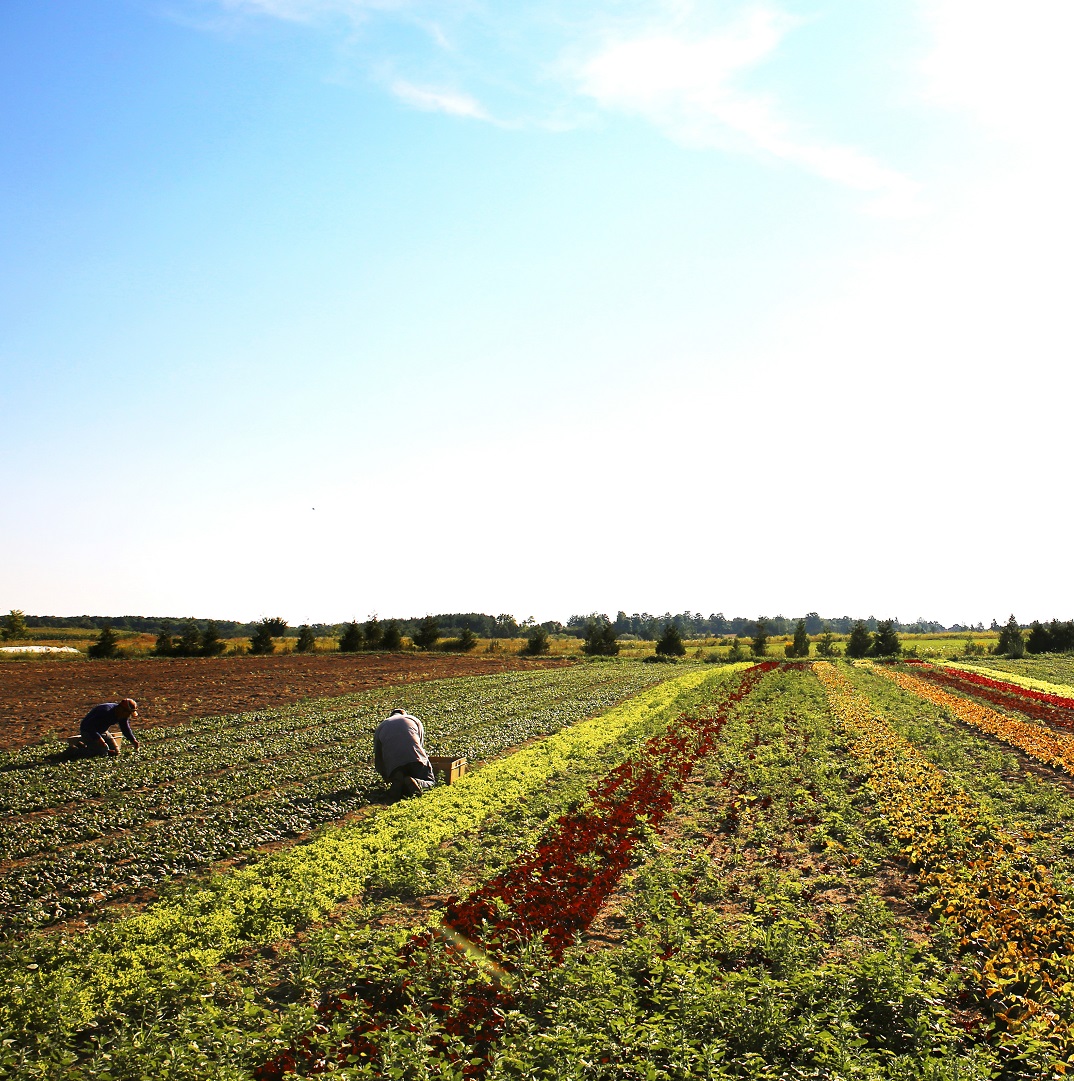Heal The Soil, Save the Planet: 100km Foods & The New Farm
There’s no two ways about it: the way we produce food and the diets we choose to eat need to radically change. Industrial, global food production is one of the main contributors to the climate change crisis. We live within the bounds of a dire paradox: in Canada, over 1 million households are food insecure even while Canada is one of the wealthiest nations in the world. Canada is also a key player when it comes to agricultural production, which generated $111.9 billion of Canada’s GDP (Gross Domestic Product) in 2016. It is not coincidental, then, that Canada is one of the worlds highest emitters of global CO2, ranking 9th in the world.
So, what does all of this mean for us?
It means Canada as a nation, and we as its citizens, have an enormous responsibility to address how our current agricultural practices contribute to the worsening climate crisis and our inequitable food systems. Or, to frame it another way, an urgent opportunity to commit to real, substantive change. Because the question has become not if we need to radically transform our food systems, but will we do so in time?
Today, we’re going to focus on the environmental impact of agriculture. At 100km Foods, we are lucky enough to partner with some amazingly innovative and proactive farmers, who recognize the climate crisis and the role agriculture has in it. Indeed, farmers and agricultural workers are already on the front lines of climate change. They are intimately aware of the markers we already measure: worsening rates of soil erosion, droughts, high temperatures and crop failures. These farmers are already working to transform their practices and their lands in order to mitigate (or even, reverse) some of the effects of climate change. The term for these agricultural practices is regenerative agriculture.
What is regenerative agriculture?
Regenerative agriculture takes sustainable practices one step beyond reducing CO2 emissions to examining net carbon output. The idea is that farmers who integrate a series of organic farming principals that embody a holistic systems approach on their land can not only reduce their emissions, but sequester carbon within their soil, and allow their lands to act as a carbon sink. Carbon sinks (the Earth’s oceans and old growth forests) are absolutely crucial in regulating global temperatures and maintaining the health of our atmosphere, but right now, they are disappearing at an alarming rate.
The potential regenerative agriculture holds to mitigate the effects of climate change is profound: “Simply put, recent data from farming systems and pasture trials around the globe show that we could sequester more than 100% of current annual CO2 emissions with a switch to widely available and inexpensive organic management practices, which we term ‘regenerative organic agriculture.’ These practices work to maximize carbon fixation while minimizing the loss of that carbon once returned to the soil, reversing the greenhouse effect.” (Rodale Institute)
Global trials have been underway for some years now to collect the data on how these practices compare to traditional agriculture. The benefits as outlined by the Rodale Institute, so far, are very positive:
The potential, positive impact farmers around the globe could have if they transitioned towards farming using such principles is, frankly, staggering.
100km Foods & Farm Partners
We had the opportunity to speak to Gillian Flies, from The New Farm, about regenerative agriculture and what that look likes in the context of Ontario farmers. Gil and her partner Brent Preston have always integrated organic land management practices on their farm since they became farmers over a decade ago. However, this past year, they have begun their process to shift fully into practicing regenerative agriculture land management.
We are really excited to share a bit about what they’re working on. 2019 marks the first year that they will transition to “no-till” practices on their entire farm. They experimented with this last year and, through soil testing, can confirm this shift is already sequestering more carbon and improving their soil health. They have also introduced a herd of 40 cows to their land, who will be on a precise rotational grazing schedule to fertilize the soils. They’ve planted over 10, 000 trees on their land and have installed solar panels.
They are also planning on expanding their acreage by partnering with neighbouring farms and transitioning those lands towards regenerative agriculture. They intend to develop shared services amongst this network of farms to build resilience and profitability. Ultimately, they envision starting educational programs to train other farmers how to integrate regenerative agriculture on their own farms!
This kind of innovation, action and forward thinking to address climate change from The New Farm is one of the crucial reasons 100km Foods is deeply proud to be their local food distributor. We invite you to learn more about regenerative agriculture and the work The New Farm is doing by listening to Gillian’s recent Ted Talk. We also look forward to participating in the knowledge sharing between farms, chefs, and everyone in the food industry at the upcoming 2019 Terroir Symposium!



